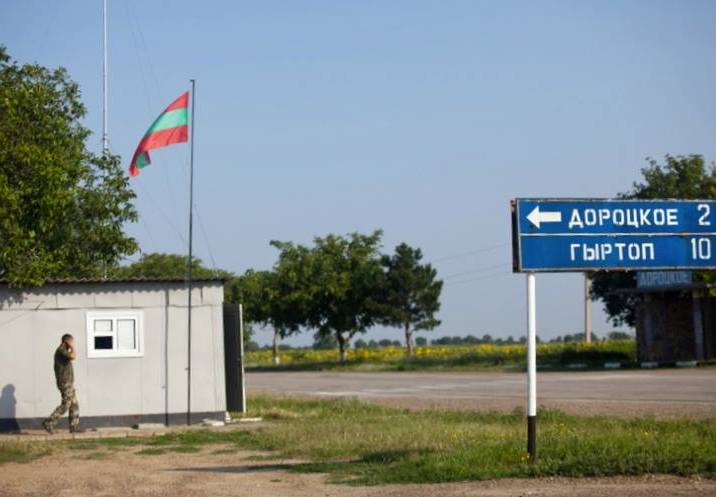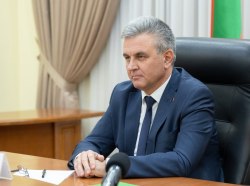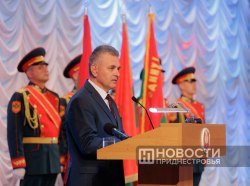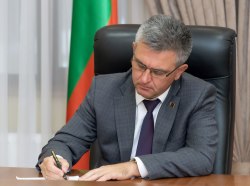One of the most pressing issues that the Moldovan side raises on a platform of the governing body of the peacekeeping operation (the Joint Control Commission) remains the presence in the Security Zone of Pridnestrovian border structures, which, by the way, have been serving there since 1993.
Almost no JCC meeting is complete without discussion of this issue; Chisinau representatives send protest appeals and statements. The last document is dated November 13 of this year.
There, in particular, the Pridnestrovian side is accused of "increasing the militarization of the Security Zone."
As a response to the appeal, the Pridnestrovian delegation of the JCC strongly recommends that colleagues “study the materiel” and understand the relevance of such theses.
“First of all, we consider it necessary to note that by militarization it is customary to understand the actions of state bodies in the sphere of economy, politics and society aimed at building up the military power of the state. The main features of militarization are increase in the size of the army, creation of new types of weapons and military equipment, cultivation of the idea of the need to conduct war in society in order to defend or capture new territories,” representatives of Tiraspol recall.
Obviously, there are none of the above signs of militarization in the actions of the Pridnestrovian authorities in the Security Zone. Moreover, according to the delegation from the PMR, since June 2019, the number of employees of the Pridnestrovian security forces at posts in the Security Zone has been reduced by 20%.
In addition, the said appeal of the Moldovan delegation notes that “representatives of the Pridnestrovian security forces (border guards), starting in May 2019, began to implement the decisions adopted by the Pridnestrovian leadership on the arrangement of the state border in the Joint Peacekeeping Forces area of responsibility, which, in their opinion, the Joint Control Commission should prevent.”
In response, representatives of Tiraspol recall that the peacekeeping operation is not endowed with the appropriate competence to put or remove posts that are not related to the Peacekeeping Forces.
“Secondly, the functions of the JCC as a whole and the powers of the Pridnestrovian delegation in particular do not extend to the solution of border issues. Moreover, there is the relevant legislation of Pridnestrovie, which was formed back in 1990, that is, a year and a half before the armed conflict and the signing of the 1992 Agreement, and which was executed before the conflict, during the conflict and is being executed today,” members of the Pridnestrovian delegation said.
Representatives of Tiraspol emphasize that the authors of the appeal are trying to openly politicize the work of the Joint Control Commission and impose on this governing body of the peacekeeping operation a solution to issues unusual for it.
“In their speeches during the discussion of the issues on the agenda of the JCC meetings and in their appeal, the members of the Moldavian delegation repeatedly emphasized that the presence of Pridnestrovian border guards in the Security Zone indicates the presence of a border, while the presence of a border, in turn, indicates the presence of Pridnestrovian statehood. It’s hard to argue, but the members of the Moldovan delegation to the JCC are silent that no document regulating the activities of the peacekeeping mission requires peacekeepers to deal with political issues, including strengthening statehood by one side or another,” the Pridnestrovian statement says.
The Pridnestrovian side calls on Moldovan colleagues to abandon the practice of misinforming intermediaries, guarantors, and the public about alleged omissions in the peacemaking process.
“The Pridnestrovian delegation once again reminds the JCC participants that the 1992 Agreement did not give the Commission any other competence than to prevent the resumption of hostilities. Yet the mission to create favorable conditions for the course of peace negotiations between the conflicting parties, to maintain the existing format of the peacekeeping operation is clearly defined for both the JCC and the peacekeeping operation as a whole, which has been being successfully carried out in full for 28 years,” representatives of Tiraspol emphasize.
Here you can find the full text of the statement.








